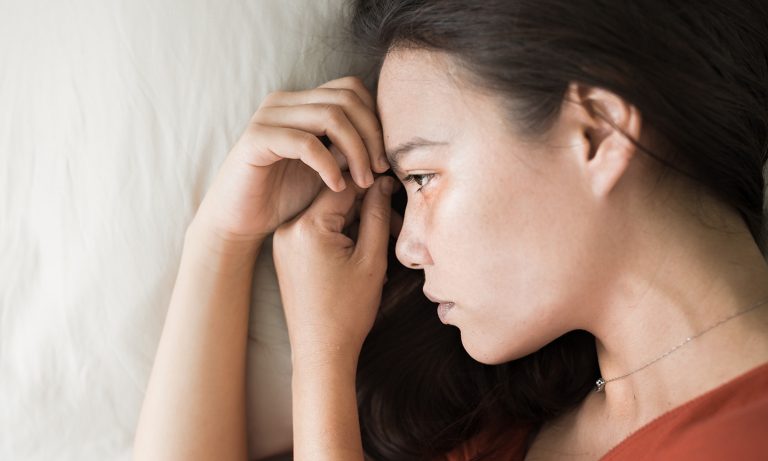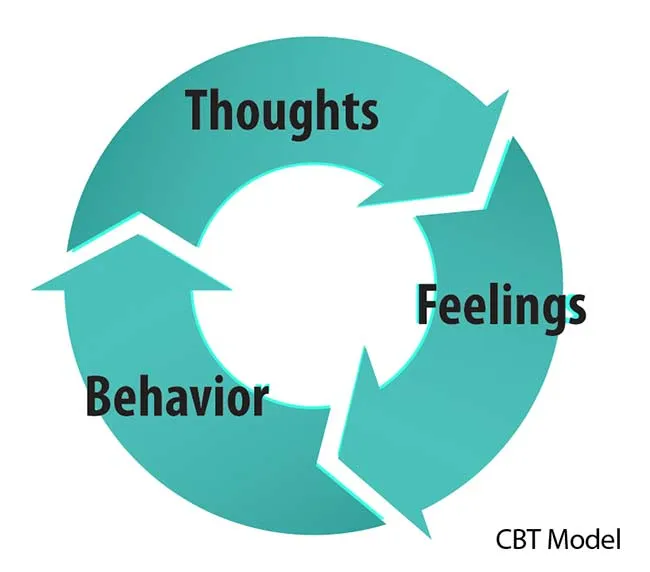When most people think about mental health conditions, the first thing that comes to mind is depression or anxiety. However, there are many other mental health conditions that people may not be as familiar with. However, there is another condition that is often overlooked: isolation. Isolation can be just as bad for a person’s mental health as depression or anxiety. But it often gets less attention. In this article, we will discuss the dangers of isolation and how to overcome it.
Contents
- 1 What Is Isolation?
- 2 Signs That You Are Being Isolated
- 3 Reasons For Isolation
- 4 What Triggers Isolation?
- 5 What Are the Effects of Isolation?
- 6 How To Deal With Social Isolation
- 7 Benefits Of Dealing With Isolation
- 8 Therapy Options For Isolation
- 9 Self Help Strategies To Deal With Isolation
- 10 Helping Someone Who Is Dealing With Isolation
- 11 Conclusion
- 12 A Word From Therapy Mantra
What Is Isolation?
Isolation is a mental health condition that is often overlooked. People who are isolated may feel like they are the only ones who feel this way. They may feel alone, lost, and without hope. Isolation can be caused by many things, such as feeling disconnected from others, experiencing traumatic events, or even living in poverty.
People might become isolated. This means that they will do fewer social activities and spend time with friends or family less often. They may also lose interest in activities they used to enjoy. This can lead to feelings of loneliness and depression.
If you are experiencing isolation, it is important to seek help. There are many resources available for people who are struggling with this condition. Friends and family members can also offer support. It is important to remember that you are not alone. There is help available, and you can get through this.
Signs That You Are Being Isolated

- You are not invited to social events or gatherings. This could be a sign that you are being isolated from your friends or family.
- Your phone is silent. If you are usually contacted by your friends and family, but your phone has been silent for a while, this could be another sign that you are being isolated.
- You feel like you’re always alone. If you constantly feel alone, even when you’re around other people, this could be a sign that you are going through isolation.
- You stop participating in activities you used to enjoy. If you stop doing the things that you used to enjoy, like going to the gym or hanging out with friends, this could be a sign that you are being isolated.
- Your physical health deteriorates. If your physical health starts to decline, even though you haven’t changed anything about your lifestyle, this could be a sign that you are being isolated.
- Your friends stop calling and texting you as often. If your friends stop calling and texting you as often, this could be a sign that they are trying to isolate you.
- People start excluding you from conversations or they talk about you behind your back. If you start to feel like you’re being left out of conversations or that people are talking about you behind your back, this could be a sign that you are being isolated.
- You are the last person to know about news and gossip.
- Others treat you differently than before, being colder and more distant.
- Your family and friends have told you that they’ve been noticing your isolation.
If you are experiencing any of these signs, it’s important to reach out for help. Isolation can be a very dangerous mental health condition and should not be taken lightly. If you are struggling, please don’t hesitate to call a therapist or your doctor.
Reasons For Isolation

There can be many reasons why someone may feel isolated. Some of the most common reasons include:
- Feeling lonely or disconnected from others: This may be due to a lack of social support, feeling misunderstood or unsupported by others, or having few friends.
- Having a mental health condition: This can lead to feelings of loneliness, isolation, and exclusion.
- Trauma: Experiencing a traumatic event can cause people to feel isolated from others due to feelings of shame, guilt, or self-blame.
- Physical health issues: People who are physically ill may feel isolated from others due to their illness or the way they are treated by others.
- Cultural differences: People who are from a different cultural background than those around them may feel isolated and alone.
- Age: Older adults may feel isolated due to the loss of friends and family, retirement, or feeling that they don’t belong in today’s society.
- Gender: Women may feel more isolated than men, due to traditional gender roles and the lack of social support networks for women.
- Sexual orientation: People who are lesbian, gay, bisexual, or transgender may feel isolated from the heterosexual majority.
- Socioeconomic status: People who are from a lower socioeconomic status may feel isolated due to their lack of money, education, or social status.
- Having a difficult time making friends or keeping friends: This may be due to personality traits, such as being introverted or shy or having a history of substance abuse or mental health issues.
- Being a caregiver and not having enough time for social activities: This is a common issue for caregivers of people with chronic illnesses or disabilities.
- Moving to a new city or country: This can be overwhelming and lead to feelings of loneliness and isolation.
What Triggers Isolation?
There are many triggers that can lead to isolation. Some people may become isolated after a traumatic event, such as a death in the family or a natural disaster. Others may isolate themselves due to mental health conditions like depression or anxiety. Substance abuse can also lead to isolation, as can social anxiety and other disorders that make it difficult for people to connect with others. Feeling lonely or unsupported can also trigger isolation.
What Are the Effects of Isolation?

Isolation can have devastating effects on both physical and mental health. People who are going through isolation tend to be less healthy overall and are at greater risk for diseases like cancer and heart disease. They also tend to be more depressed and anxious and are more likely to commit suicide.
- Depression: One of the most common effects of isolation is depression. People who are isolated often feel lonely and unsupported, which can lead to a sense of despair. Depression can cause physical problems like headaches, stomach aches, and insomnia. It can also lead to suicidal thoughts.
- Anxiety: People who are going through isolation may also experience anxiety disorders. These disorders can cause a wide range of symptoms, including sweating, chest pain, and difficulty breathing. Anxiety can be very debilitating and may make it difficult for people to participate in activities they enjoy or maintain relationships with others.
- Suicide: Isolation is a major risk factor for suicide. People who are going through isolation may feel hopeless and see no way out of their situation. Suicide is the tenth leading cause of death in the United States, and isolation is a major contributing factor to many suicides.
How To Deal With Social Isolation
If you are experiencing feelings of social isolation, there are things that you can do to help make yourself feel better. Here are some tips:
- Reach out to family and friends- even if you only talk to them on the phone, it will help reduce loneliness.
- Join an online support group or forum related to something that interests you. This can be a great way to connect with others who share your interests.
- Volunteer with a local charity or organization. This is a great way to meet new people and make friends.
- Start attending social events or groups that interest you. This can be a great way to meet new people and make friends.
- Talk to your doctor about your feelings of isolation. They may be able to refer you to a therapist or counselor who can help you address the root causes of your isolation.
Isolation is a common but often-forgotten mental health condition. If you are feeling isolated, there are things that you can do to help make yourself feel better. Reach out to family and friends, join an online support group, volunteer, or start attending social events. Talk to your doctor if you need help addressing the root causes of your isolation.
Benefits Of Dealing With Isolation

There are many benefits to dealing with isolation. you
- First, it is important to understand that there are different types of isolation.
- Second, it is crucial to identify the source of the feeling of loneliness or isolation. Once you do this, it becomes easier to find ways to deal with it.
- Third, admitting that there is a problem and seeking help are both very important steps in overcoming loneliness or isolation.
- Fourth, talking about feelings of loneliness or isolation can be helpful in finding solutions and support from others.
- Finally, taking action and doing something productive often helps reduce feelings of loneliness or isolation.
Therapy Options For Isolation

There are many different therapy options for those who suffer from isolation. Some of the most common therapies include cognitive-behavioral therapy, dialectical behavior therapy, and family systems therapy. However, there are many other types of therapies that may be more effective for certain people. It is important to find a therapist who can help you address the underlying causes of your isolation and provide you with the tools you need to manage your condition effectively.
- Cognitive-behavioral therapy: Cognitive-behavioral therapy is a type of therapy that helps people understand how their thoughts, feelings, and behaviors are related to each other. Isolation therapy can help people who feel alone. They can identify and change thoughts and beliefs that make them feel like they are alone.
- Dialectical behavior therapy: Dialectical behavior therapy is a type of cognitive-behavioral therapy that was specifically developed for people with a borderline personality disorder. This type of therapy helps people to change the way they think and behave. However, it can also be helpful for people who struggle with isolation. This type of therapy teaches people how to regulate their emotions, tolerate distress, and interact effectively with others.
- Family systems therapy: Family systems therapy is a type of psychotherapy that examines the family as a unit. This type of therapy can help people who have problems with isolation. It can help to find out the reasons why a person feels isolated. Family systems therapy can also help to improve family communication and relationships.
Therapy is just one aspect of treatment for isolation. It is important to also make healthy lifestyle choices that can support your mental health.
Self Help Strategies To Deal With Isolation

- Reach out to friends and family: One of the best ways to deal with isolation is to reach out to friends and family. Talk about your feelings, what you are struggling with, and how they can help support you.
- Join a social group or club: Joining a social group or club can be a great way to meet new people and make connections. It can also help reduce feelings of loneliness and isolation.
- Get involved in your community. Taking part in your community can help you feel the connection to something larger than yourself. It can also provide opportunities for socialization.
- Stay connected online: Staying connected online can be a great way to stay connected with friends and family who live far away. It can also help you connect with others who share your interests.
- Talk to a therapist: If you are feeling isolated and alone, talking to a therapist can be a great way to get support. A therapist can provide guidance and support as you work through these feelings.
Isolation is an invisible mental health condition. A person might feel lonely if they have a disease. It can be hard to find people who will help you. However, isolation is actually quite common.
Helping Someone Who Is Dealing With Isolation

If you have a friend or family member who seems to be struggling with isolation, there are ways that you can help.
- First and foremost, it’s important to be understanding and non-judgmental. It can be hard for your relatives to talk about what they are going through. Try not to push them. Instead, just let them know that you’re there for them if they need anything.
- You can also encourage your loved ones to take part in activities that interest them. This can help boost their mood and make them feel more connected to the world around them. If your loved one does not want to go out, you can do activities that can take place at home. You could cook dinner together or watch a movie.
- If your loved one is willing, you can also try to connect them with a support group or therapist. This can be a great way for them to talk about their feelings and get the help they need.
No matter what you do, always remember that your loved one’s mental health is important. Be there for them during good times and bad, and let them know that they are not alone.
Conclusion
Isolation is a common mental health condition that can be difficult to deal with. However, there are many ways to get help. Reaching out to friends and family is often the best way to start. You can also encourage your loved ones to participate in activities that interest them. If they are willing, you can connect them with a therapist or support group. Remember that your loved one’s mental health is important, and be there for them during good times and bad.
Distress can often lead to isolation. People who are feeling isolated may find it difficult to communicate effectively with others.
Family systems therapy is a type of psychotherapy that examines the family as a unit. This type of therapy can help people who have problems with isolation. It can help to find out the reasons why a person feels isolated. Family systems therapy can also help to improve family communication and relationships.
A Word From Therapy Mantra
Your mental health — Your psychological, emotional, and social well-being — has an impact on every aspect of your life. Positive mental health essentially allows you to effectively deal with life’s everyday challenges.
At TherapyMantra, we have a team of therapists who provide affordable online therapy to assist you with issues such as depression, anxiety, stress, workplace Issues, addiction, relationship, OCD, LGBTQ, and PTSD. You can book a free therapy or download our free Android or iOS app.


